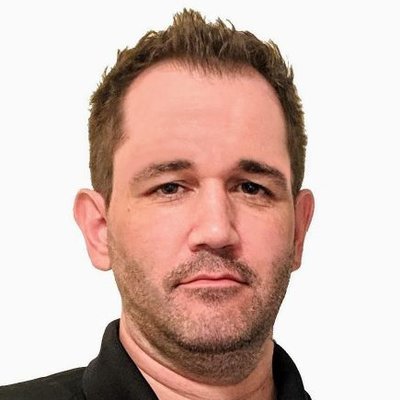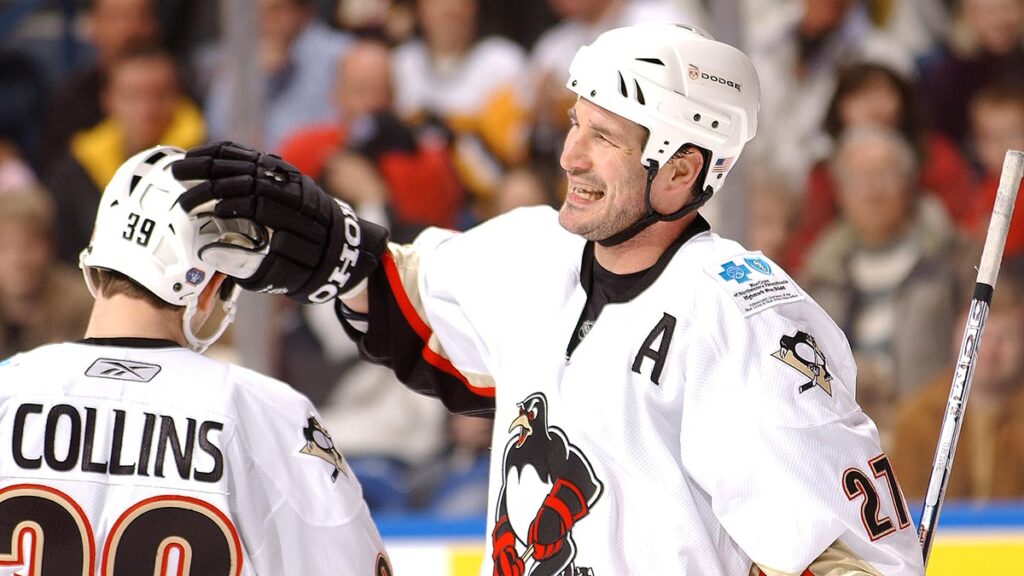Patrick Williams, TheAHL.com Features Writer
It was one of those really beautiful fall days in Northeastern Pennsylvania, and Dennis Bonvie was on the golf course.
The director of pro scouting for the Boston Bruins, Bonvie had a drive ahead of him to Philadelphia for a game that night. He checked his phone and saw that he had a missed call. It was from AHL President and CEO Scott Howson.
“Scott Howson?” Bonvie remembers asking himself. “What did I do?”
Bonvie phoned Howson back. There was no trouble, but Bonvie learned that he had been selected for induction into the AHL Hall of Fame.
Bonvie took in the news, thanked Howson, and ended the call.
Then he realized that it had ended a bit abruptly. So he dialed Howson again.
“Sorry,” Bonvie told Howson. “I got a little choked up there. I appreciate it. It’s an honor. Basically, I can’t believe it’s happening to me.”
But it is happening, just like the career in hockey that he built for himself, one that started when he left his native Nova Scotia for the Ontario Hockey League’s Kitchener Rangers at 18 years old in 1991 as a 19th-round draft pick.
The 277th pick, Bonvie points out.
“I think the janitor actually threw my name out because everybody had left the building,” Bonvie quipped, “but I was pretty ecstatic that I got a chance.”
One Saturday night against North Bay, he apparently made an impression on head coach Bert Templeton, who picked him up in a trade the next day. From there, he was off to build a reputation that he would carry on to a 15-year pro career in the AHL and the National Hockey League.

“He gave me a chance,” Bonvie said of Templeton, who passed away in 2003. “That’s all I asked for. I told him, ‘I’ll work on my skills. I’ll work on my skating. I’ll work on my game, but I can do this if you believe in me. I can do this.’
“And he did. He gave me an opportunity, which is all I asked for.”
After two rambunctious seasons rambling around the OHL, the Calgary Flames saw some potential and gave Bonvie a tryout. But it did not pan out. So it was back home to Nova Scotia.
Then came an opportunity with the Cape Breton Oilers, the defending Calder Cup champions. He was offered a tryout from general manager Dave Andrews, and got in the lineup for a preseason game.
“I think it was basically just a token game to start,” Bonvie said, “and they gave me another game. I did well again, and I just kind of hung around.”
He did more than hang around, though. A defenseman by trade, he moved up to become a forward. In Bonvie’s second pro season, Andrews – now president of the league – named him as a roster replacement for the 1995 AHL All-Star Game, and he scored the first goal in the revamped event’s history. On Apr. 19, 1995, he made his NHL debut with the Edmonton Oilers, the first of 94 NHL games that he would go on to play.
After Edmonton moved their prospects from Cape Breton to Hamilton, Ont., Bonvie and the Bulldogs went to the 1997 Calder Cup Finals. He spent the 1998-99 season with the Chicago and Philadelphia organizations.
But the summer of 1999 changed Bonvie’s career. The Pittsburgh Penguins were setting up a full AHL affiliate in a brand-new arena in Wilkes-Barre/Scranton. It had been a long process to bring the AHL to the area, but it had finally happened, even if the team had to play its first month on the road that season.
On Nov. 13, 1999, the Wilkes-Barre/Scranton Penguins made their home debut, and fans quickly had their first fan favorite. Some of those fans were new to hockey, but they took to the physical, energetic play that was Bonvie’s style. A Penguins ticket quickly became hard to find in a market that had never previously hosted pro hockey, and the arena became known as “The House That Bonvie Built.”
“The place was packed,” Bonvie remembered. “It was just an aura and kind of a buzz around the valley that this is something, right? I told my wife (Kelly), ‘This is going to be a really special place. I can just feel it. I can sense it.’ And it really was.”
While the Penguins struggled in their first season, the following year brought a trip to the Calder Cup Finals. Bonvie left Pittsbugh for stints in the Boston, Ottawa and Colorado organizations, which included three AHL seasons with fierce Wilkes-Barre/Scranton rivals in Binghamton and Hershey. The fan favorite had become a local nemesis.
But any rough feelings were quickly forgotten when Bonvie returned to the Penguins in 2005. He retired in 2008 after one more trip to the Finals, having played 871 regular-season games in the AHL.
The Bonvies had already established roots in the Wilkes-Barre area long before retirement, though. Both Dennis and Kelly are Nova Scotians and felt some pull to return home, but they had found familiarity in Pennsylvania. With their son, Rhys, and daughter, Davyn, settling in Northeastern Pennsylvania just made sense.
“The people are so genuine, so nice,” Bonvie said. “It’s a home away from home.”
Some look at Bonvie’s 4,804 penalty minutes between the AHL and NHL – a pro hockey record – and might dismiss him as a one-dimensional enforcer. But he had a simple mission statement. To him, a proper development environment meant making sure that his teammates could play freely.
“I wanted to make sure that everybody was well-protected,” Bonvie said. “I took my job seriously to make sure that everybody could play, play to their maximum, not play scared, and to make sure that they could be out there doing whatever they could do to continue to develop and become better players.”
After his playing days ended, Bonvie moved into scouting with Toronto and Chicago before eventually moving on to the Bruins. His time with Chicago featured three Stanley Cup championships, and now he is part of a Boston organization that is a perennial contender. He works closely with Providence head coach Ryan Mougenel, who recalled his first chat with Bonvie.
“What he knew about the identity of a player was off the charts,” Mougenel said, “and I think that only comes from somebody that’s been around and has spent a lot of time listening. That’s one of his best qualities. I love picking his brain because he’s a guy that really gets the dressing room and the player, and I think what he brings to our organization is so valuable. I think he thinks a little outside of the box, and I think that’s so important when you’re evaluating players.”
Bonvie’s playing experiences have helped to push him to the top of the pro scouting world. He knows what it was like to battle for years to break the NHL-AHL bubble.
“I played defense. I played forward,” Bonvie explained. “I had to understand the game. You sit there and understand what people are going through in terms of all players, your best players to your lower-level players, so you get a good glimpse of what everybody is going through.
“You accentuate the positives in players, and those negatives, can we improve on them? Can they come to our organization and add some value at whatever level they can? You have a lot more time for players as a scout because you’re watching them as a whole. I find that everyone can see the negatives; the negatives are easy. But you bring those positives out. Can he take those positives, continue to add to them and continue to grow his game, and be a positive to the organization?”
And that was the kind of player that Bonvie was back in 1991 when he got his chance. Raw, but willing to learn and work. He did, and he built a life in hockey that has taken him to the AHL Hall of Fame. He will be formally inducted next Monday in a ceremony during the AHL All-Star Classic in San Jose.
“I tried to be the best person I could be, the best teammate, and do it the right way,” Bonvie said. “I worked as hard as I could. I left everything on the line.
“I said when I started that as long as I can look in the mirror when I’m done, I’m going to do it as best as I can, go as far as I can.”

TheAHL.com features writer Patrick Williams has been on the American Hockey League beat for nearly two decades for outlets including NHL.com, Sportsnet, TSN, The Hockey News, SiriusXM NHL Network Radio and SLAM! Sports, and was most recently the co-host of The Hockey News On The ‘A’ podcast. He was the recipient of the AHL’s James H. Ellery Memorial Award for his outstanding coverage of the league in 2016.



